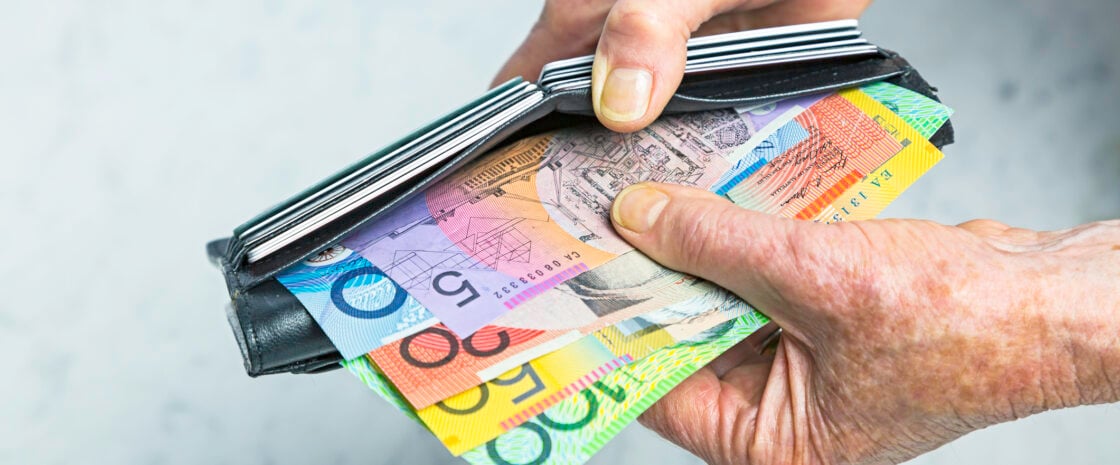If you’re in this bind, you may be tempted to use a cash advance to withdraw cash from your credit card or transfer money to a bank account. It sounds convenient, but is it worth it?
What is a credit card cash advance?
A cash advance allows you to use your credit card at a bank or ATM to get cash. It’s essentially an expensive short-term loan taken against the credit line on your credit card.
Think of a cash advance as a way to use your credit card to “buy” cash rather than goods or services.
Types of cash advance transactions
In short, a cash advance is any ATM withdrawal, bank transfer or cash equivalent transaction made while using your credit card.
The most obvious type of transaction is withdrawing cash from an ATM using your credit card. But cash advances also apply in your online banking when transferring money from your credit card into your everyday or savings account.
Some additional scenarios that trigger a cash advance include:
- Transactions that are classified as for gambling purposes.
- Buying ‘cash equivalent’ items such as foreign currencies, international money transfers, cryptocurrencies, or stored value cards.
- Buying or reloading gift or prepaid cards.
- Payments to companies or individuals who don’t accept credit cards.
- Any transfer from your credit card into another bank account.
Read the fine print to ensure you understand what’s categorised as a cash advance. Sometimes, you might not realise you’re approving a cash advance. If you’re in doubt, talk to your bank about their specific terms and conditions.
If you do find a surprise charge on your credit card statement, speak with customer service, as most banks are happy to reverse fees once or twice. Don’t be afraid to ask, as it can save you from paying unnecessary charges.
Cost of a cash advance
Banks make money on credit cards in two main ways: interest charges and credit card fees. A cash advance is one such fee.
Cash advance fees
The standard cash advance fee is 3% of the transaction amount. For example, if you withdraw $500 from your credit card (either through an online transfer or at the ATM), you’ll pay $15.
In addition, you may need to pay additional ATM or bank fees imposed by the owner of the ATM where you get your advance.
Cash advance interest rates
Unlike a regular cash withdrawal from a bank account, the money taken out from a cash advance has to be paid back with interest — just like anything else you put on your credit card.
However, cash advance interest rates tend to be higher than other credit card interest rates. And, unlike standard credit card transactions, like purchases, which have an interest-free period, cash advances incur interest from day one.
If you must withdraw cash from your credit card, the goal is to pay it back as soon as possible because the costs quickly add up.
For example:
Let’s say you currently owe $2,000 on your credit card, and your interest rate is 18%. If you pay $98 each month for two years, you’ll pay $361 in interest. Tack that $515 cash advance (plus interest) onto the total amount, and you’ll owe $2,515. You’ll pay $124 monthly for two years, increasing the interest to $454. This means the $500 cash advance actually costs you over $717.
If you’re worried about accumulating interest charges, it’s worth looking into low-interest credit cards with rates less than the national average of 19.94%.
» MORE: How to calculate credit card interest
Alternatives to a cash advance
Getting a cash advance is simple as most banks allow you to withdraw money from your credit card, but it’s one the costliest ways to get your hands on some cash.
It’s easy to disregard the long-term impact and cost of cash advance fees, especially during stressful moments. With money management skills like forward planning, regular check-ins and long-term thinking, you can reduce unnecessary fees and interest charges.
If you find yourself in a situation where you need money now, here are some smart alternatives to a cash advance:
- A personal loan. If you have good credit, consider a fixed-rate personal loan instead of a credit card. Interest rates on loans are typically much lower, so it is a less expensive way to borrow money. With any banking product, always check the associated fees, such as establishment and ongoing monthly charges.
- Borrow some money by asking a friend or family member to lend you cash.
- Limit spending and pause unnecessary expenses for a month or two. Check your budget and adjust as needed.
- Build up your emergency fund. Put aside a small percentage — around 5% — of your income every pay period into a savings account for emergencies.
- Speak with your bank. They might suggest a product or solution you’re unaware of that could better fit your needs.
- Build up your cash flow. Create a passive income stream with a money-making side hustle.
However, sometimes, even with the best intentions and planning, you need to withdraw cash on your credit card. It can be an ‘every now and then’ charge, but not a habit to get into. Instead, consider all other options before using a cash advance.
Frequently asked questions
Yes. You can use a cash advance to transfer money from your credit card into your everyday or savings account. Still, this type of transaction is generally not recommended because of costly fees and high interest rates.
Unfortunately, no. A cash advance can be a lifesaver in an emergency, but it’s one of the most expensive ways to borrow money. Credit cards aren’t designed to double as debit cards.

9 Things To Know Before Getting Your First Credit Card
Understanding the basics can save you time, money and frustration and get you on your way to building good credit.

Are There Zero-Interest and Interest-Free Credit Cards?
Interest-free credit cards include lifetime zero interest credit cards and options with 0% promo periods on balance transfers and purchases.

16 Ways to Find Fast Cash
Need money now? Learn how to get fast cash, and the types of loans to avoid when you’re strapped for cash.

Personal Loan Vs. Credit Card: What’s The Difference?
Personal loans give you a lump sum for large purchases. Credit cards work better for smaller, everyday expenses.

